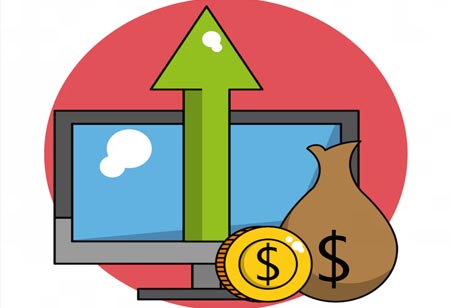CLOSE
Specials
- RegTech Europe
- Financial Risk Management APAC
- Investment Banking APAC
- Corporate Advisory APAC
- Regtech APAC
- Escrow Services
- Digital Banking Latam
- Trading Solutions APAC
- Treasury Management Europe
- CPA Firms Canada
- Financial Risk Management Europe
- Mortgage Broker
- Financial Licensing Europe
- RIA Advisory Europe
- FinTech Canada
- Financial Asset Management APAC
- Investment Banking Canada
- Payment Solution
- Lending Mangment Latam
- Payment Solution Europe
- Broker Dealer Firms Canada
- Alternative Investments Canada
- Financial Fraud
- Investment Management Latam
- Financial Health Europe
- Lending mangment
- Financial Marketing
- Proprietary Trading Europe
- Wealth Management
- FinTech
- Financial Brokerage Firm APAC
- Investment Advisory Europe
- Investment Advisory APAC
- Wealth Management MENA
- Claim Adjusting
- Claim Adjusting APAC
- Mergers and Acquisitions Consulting APAC
- Equipment Financing
- CPA Firms
- Mergers and Acquisitions Consulting Canada
- Investment Services
- Valuation Services Canada
- Wealth Management APAC
- Broker Dealer Firms
- Debt Collection Agencies
- Mergers and Acquisitions Consulting
- FinTech Europe
- Fintech Latam
- Financial Planning / Retirement
- Investment Management
- Financial Compliance
- Digital Banking Europe
- CFO Services
- Debt Collection Agencies Europe
- Wealth Management Europe
- Mergers and Acquisitions Consulting Europe
- Financial Restructuring Europe
- Financial Portfolio Management Canada
- Business Loan
- Payment and Card Latam
- Wealth Management Latam
- Mergers and Acquisitions Consulting Latam
- Tax Advisory Canada
- Trading Solutions Europe
- Alternative Investments
- Digital Insurance Europe
- Investment Services Latam
Weekly Brief
×Be first to read the latest tech news, Industry Leader's Insights, and CIO interviews of medium and large enterprises exclusively from Financial Services Review
Thank you for Subscribing to Financial Services Review Weekly Brief
Sustainable Finance to Bolster Europe's Economy
To ensure that we move toward greater sustainability on all fronts, the interaction between policies directed at the actual economy and those aimed at the financial sector will be essential.

By
Financial Services Review | Wednesday, December 21, 2022
Stay ahead of the industry with exclusive feature stories on the top companies, expert insights and the latest news delivered straight to your inbox. Subscribe today.
Achieving full sustainability remains a huge challenge, but striving towards higher levels of sustainability across the economy is a must because of the climate and environmental challenges encountered.
FREMONT, CA:Governments and taxpayers alone cannot afford the investments required to finance the transition of the EU economy to a climate-neutral, climate-resilient, resource-efficient, and fair economy. To mobilise, scale up, and direct private investment into more sustainable technologies and industries and to finance economic growth in a sustainable way over the long term, the EU has developed a sustainable finance policy.
The European Green Deal's policy goals, as well as the EU's international obligations to climate and sustainability goals, can both be achieved with the support of sustainable finance.
In sustainable finance, investment decisions are made while taking into account governance, social, and environmental factors. Investments are evaluated for their potential to protect biodiversity, reduce pollution, advance the circular economy, and aid in mitigating and adapting to climate change. Human rights concerns, labour relations, and investments in communities are further factors. As part of the action plan on sustainable finance, important laws, including the Taxonomy Regulation, the Sustainable Finance Disclosure Regulation, and the EU Climate Benchmarks Regulation, have already been implemented.
The sustainable finance policy package from the EU accomplishes a lot and, in many ways, sets the standard. The EU is attempting to adopt a comprehensive strategy for sustainable finance that takes into account crucial intervention points and has the potential to significantly alter how the financial system supports sustainability. Various actors, financial goods, and instruments are the subject of rules and regulations. The increased disclosure of the performance of financial and non-financial undertakings and financial products in terms of their level of environmental sustainability, exposure to sustainability risks, and other factors are common themes. In other words, using more transparency as an engine for change so that everyone can see which investments are sustainable and helping to lower the risk of greenwashing.
Through active participation in and contributions to several expert groups aiding the European Commission in its work on the Action Plan on Sustainable Finance and its components, such as the EU taxonomy, the EEA has helped shape EU sustainable finance policy. The EEA serves as an advisor to the Commission on many matters relating to the Sustainable Finance Disclosure Regulation and is a permanent member of the Platform on Sustainable Finance established under the EU Taxonomy Regulation. Through active participation in and contributions to several expert groups aiding the European Commission in its work on the Action Plan on Sustainable Finance and its components, such as the EU taxonomy, the EEA has helped shape EU sustainable finance policy. The EEA serves as an advisor to the Commission on many matters relating to the Sustainable Finance Disclosure Regulation and is a permanent member of the Platform on Sustainable Finance established under the EU Taxonomy Regulation.
A fully sustainable economy is a prerequisite for a genuinely sustainable financial system and vice versa. Both of these are not true at the moment. To ensure that we move toward greater sustainability on all fronts, the interaction between policies directed at the actual economy and those aimed at the financial sector will be essential.
The financial system is genuinely global, like many other things. Thus other nations and regions must also contribute to the greening of their economies. Despite the inherent complexities of full sustainability, the EU strives to achieve higher levels of sustainability throughout the economy because of environmental and climate concerns.

Copyright © 2025 Financial Services Review. All rights reserved





